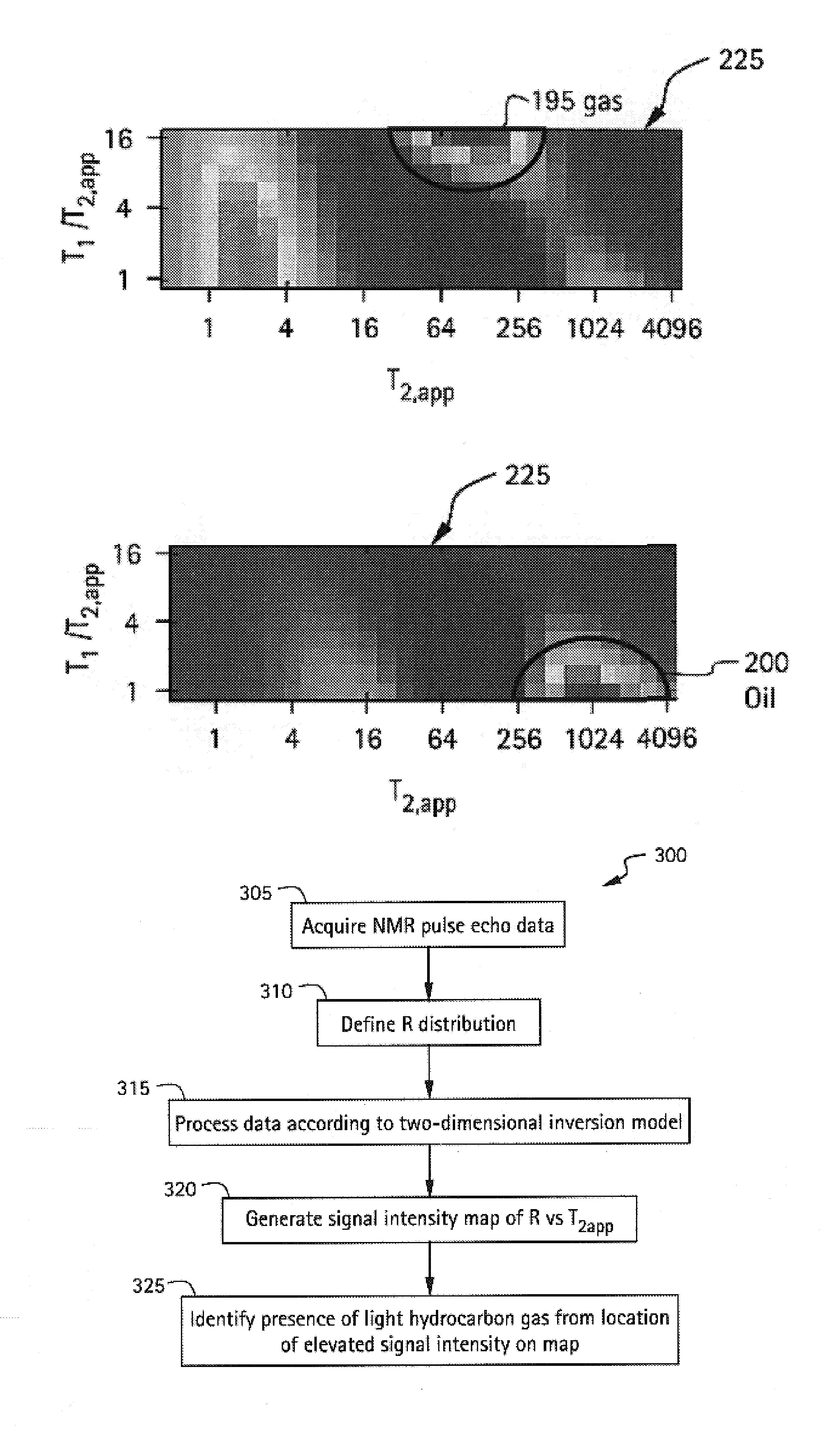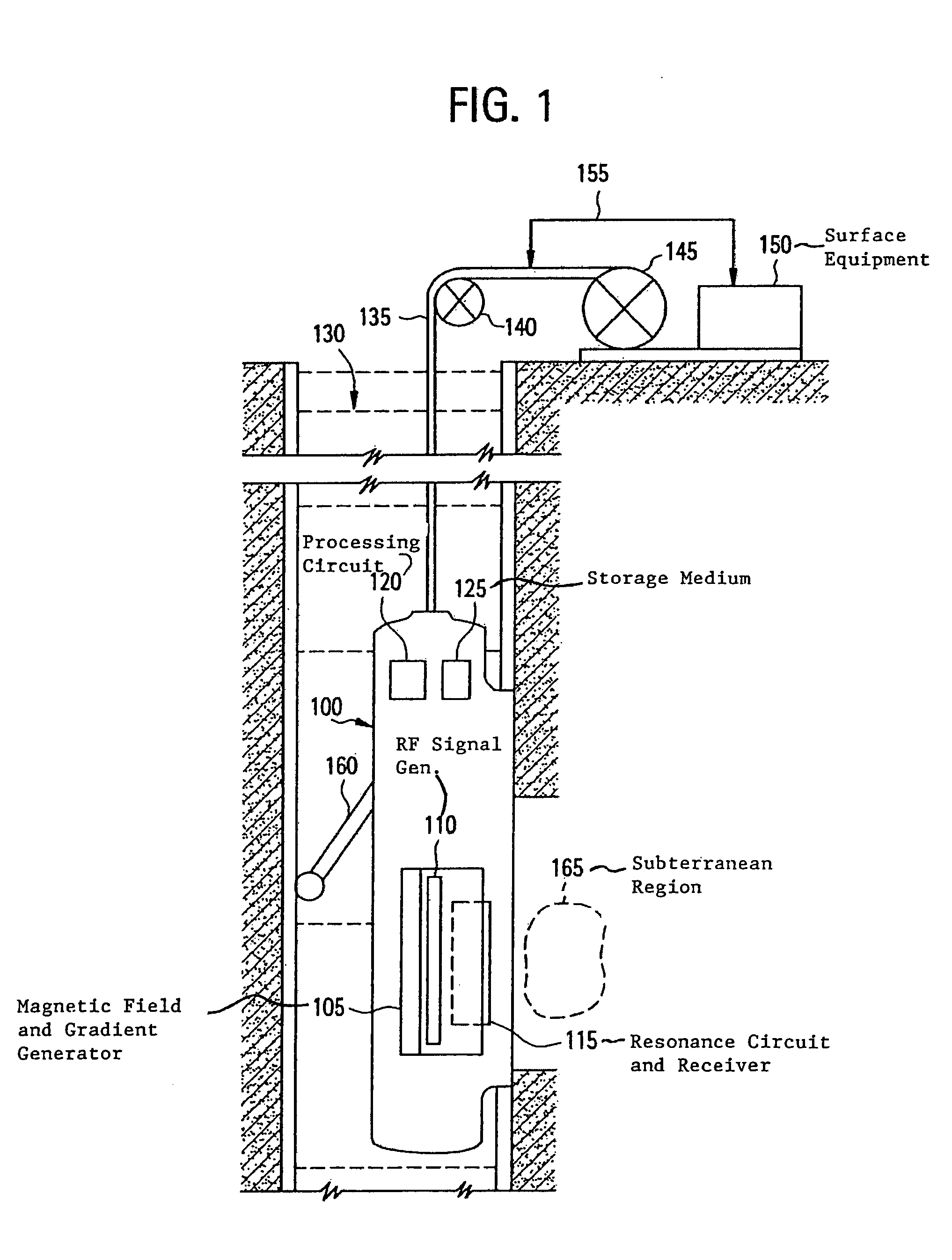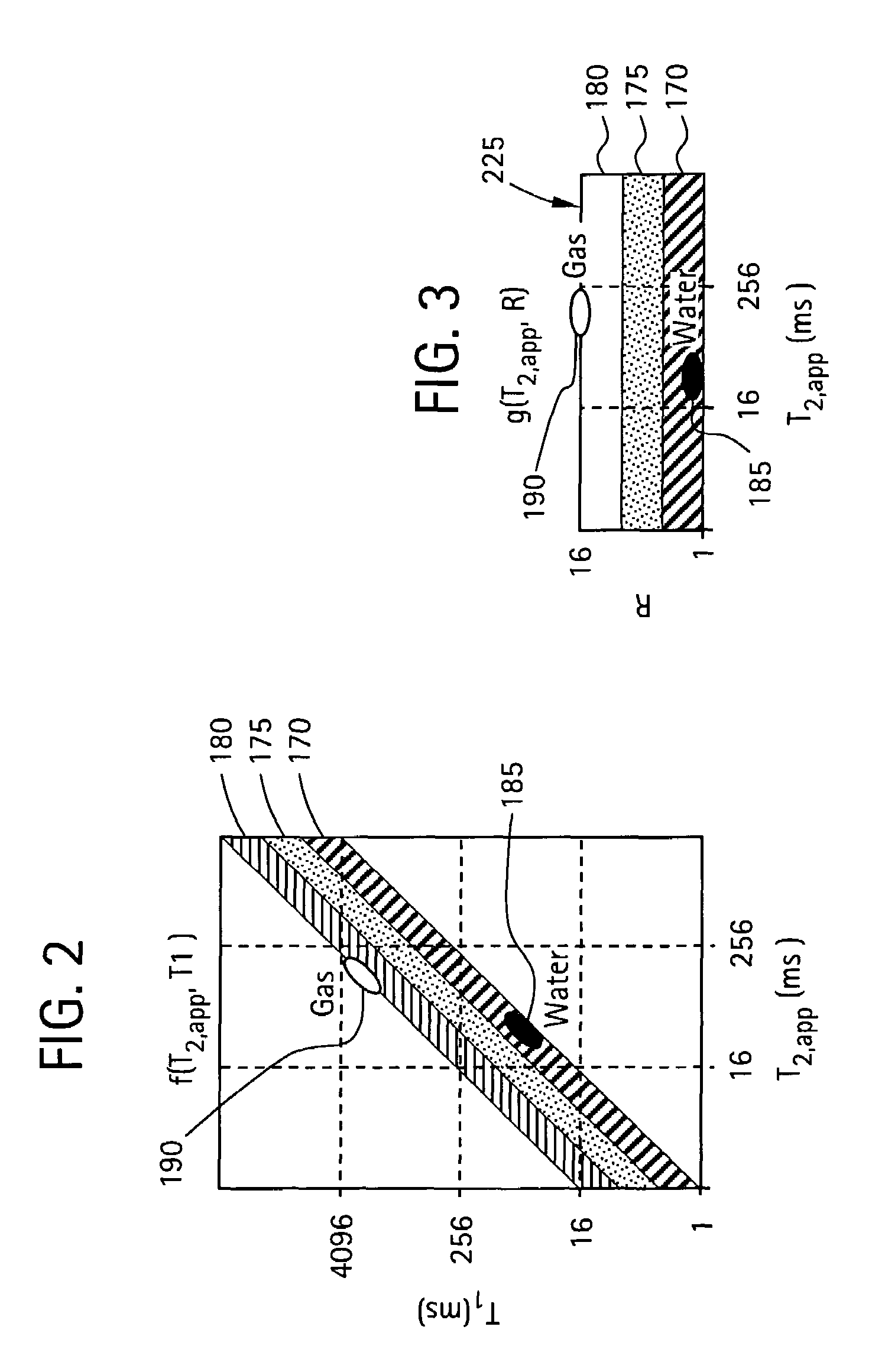Method and apparatus for reservoir fluid characterization in nuclear magnetic resonance logging
a technology of nuclear magnetic resonance and reservoir fluid, applied in the field of downhole nuclear magnetic resonance (nmr) apparatus, data processing, interpretation methods for evaluating a characteristic of a region, can solve the problems of reduced signal certainty for gas discerning, difficult or limited detection,
- Summary
- Abstract
- Description
- Claims
- Application Information
AI Technical Summary
Benefits of technology
Problems solved by technology
Method used
Image
Examples
Embodiment Construction
[0018]Embodiments of the invention provide a nuclear magnetic resonance (NMR) wellbore logging method and apparatus for applying a sequence of magnetic field pulses to a subterranean region so as to magnetically excite the region in such a manner that enables a data processing method to identify and quantify light hydrocarbons from the NMR logging data. A two-dimensional inversion method is used to obtain images of the ratio of T1 / T2app vs. T2app from NMR logs acquired using multiple wait times (TW), which is represented by a signal intensity map. Embodiments disclosed herein, however, are not limited to the use of multiple wait times. The technique is particularly useful and robust for detecting and quantifying light hydrocarbons such as gas and retrograde condensates. In another embodiment, it can also be used to detect the existence of large vugs in carbonate formations.
[0019]An embodiment of the invention is particularly useful in situations where a large diffusion contrast, and...
PUM
 Login to View More
Login to View More Abstract
Description
Claims
Application Information
 Login to View More
Login to View More - R&D
- Intellectual Property
- Life Sciences
- Materials
- Tech Scout
- Unparalleled Data Quality
- Higher Quality Content
- 60% Fewer Hallucinations
Browse by: Latest US Patents, China's latest patents, Technical Efficacy Thesaurus, Application Domain, Technology Topic, Popular Technical Reports.
© 2025 PatSnap. All rights reserved.Legal|Privacy policy|Modern Slavery Act Transparency Statement|Sitemap|About US| Contact US: help@patsnap.com



